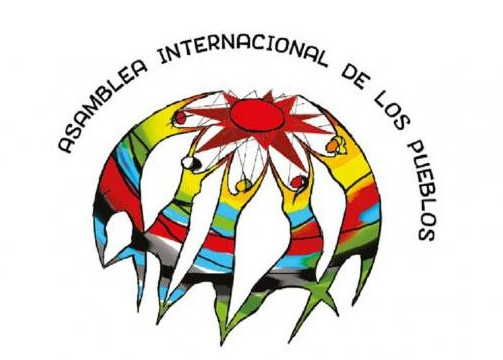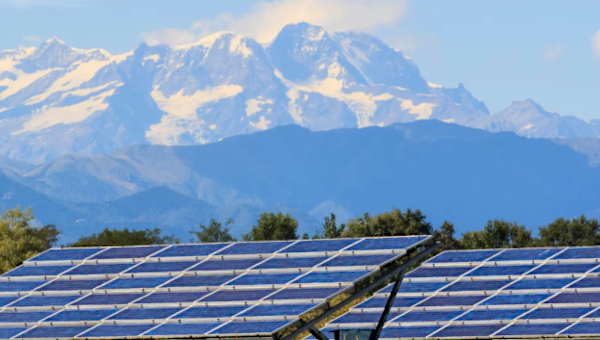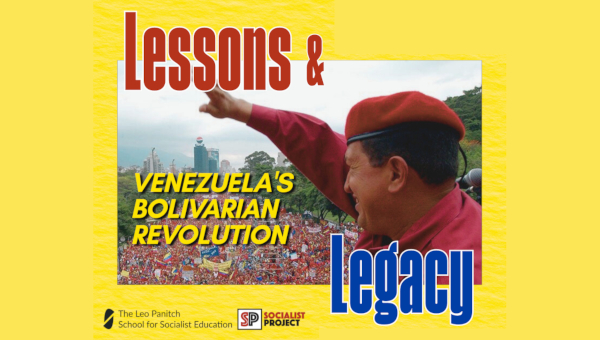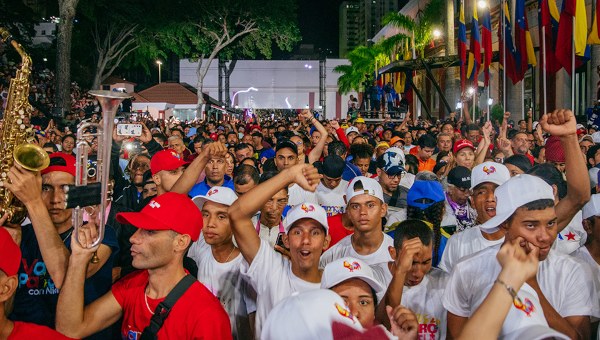Searching for New Forms of Struggle
João Pedro Stédile Reports on the Latin American Left from the International People’s Assembly
From February 24 to 27th, the International People’s Assembly (AIP) was held in Caracas, in solidarity with the people and government of Venezuela represented by Nicolás Maduro. Almost 500 delegates from 90 countries of the world attended the event, and one of the most ardent supporters of this initiative in the last two years is the leader of the Landless Movement of Brazil, João Pedro Stédile.
Carlos Aznarez (CA): Why an International People’s Assembly now?
João Pedro Stédile (JPS): The effort that we are making with this coordination, not substituting any other action by the parties and unions, is to try to gather all the popular forces so that we can promote common struggles against the common enemies that are the imperialists. That is the main reason to look for new forms of international organization that promote struggles and try to unite the diverse spaces and forms of organization in our countries. In this first Assembly, because of the extent of conflict in Venezuela, which is now the epicenter of the world class struggle, at least in the West, where imperialism seeks by any means to overthrow Venezuela, the number one task, the absolute priority of all of us is to leave here with an agenda of actions, of denunciation, so that our movements can be developed in each of the countries represented here.

CA: I am the devil’s advocate: whenever this type of meeting is held, it is proposed to return to the countries and coordinate actions, and then, for some reason or because of the internal actions of each country, these things are not carried out and the documents and resolutions are packed away. Why do you think that this time it is going to happen or it should happen?
JPS: That is our self-critical reflection: we have to get out of paperwork and try to promote more actions. I believe that we should promote concrete struggles and actions because the popular forces that are here are accustomed to processes of popular organization in their countries. In other words, it is not a bureaucratic meeting that comes with the acronym or the party, but rather people who are involved in real processes of struggle in their countries. So, we are confident that when they return to their countries they will put the issue of Venezuela, the issue of internationalism, permanently on their agenda in the national struggles they are already waging.
CA: Venezuela is a turning point today in the anti-imperialist struggle. How do you think it is most valid or most effective to express solidarity with Venezuela on the continent?
JPS: It is true that there is tremendous confusion and that is why Venezuela is a key point, because even some left-wing sectors of Latin America and Europe allow themselves to be influenced by what the bourgeois press says. We had invited several European forces that refused to come to Venezuela because Venezuela is not a democracy. Look, a country that has held 25 elections in 20 years, where the private press is the majority, where the opposition marches every day it wishes, how can we say that there is no democracy in that country? So, those ideas of the bourgeoisie have also influenced sectors of the left, the most institutional, which later are moved only by electoral logic, which if they are in an election year believe that it is convenient for us to be close to Venezuelans because they are radical. Just as in the past they isolated themselves from Cuba, but Cuba is there, after 60 years of resistance and today with its happy, educated people.
“A country that has held 25 elections in 20 years, where the private press is the majority, where the opposition marches every day it wishes, how can we say that there is no democracy in that country?”
So Venezuela is very important because it is the battle of this century. If the empire succeeds in overthrowing Venezuela, that means that it will have more forces to overthrow Cuba, Nicaragua, and all the processes that propose changes, even that institutional left that only thinks of elections with the defeat of Venezuela will have more difficulties winning elections. So, even for the institutional or public struggle, it is very important to defend Venezuela and transform it into a trench of resistance and at least make it the grave of the Trump government.
CA: In your speeches and statements you tend to criticize the errors of the neo-developmental governments, but there is a tendency that in order to get out of this imperialist offensive, you have to resort back to the recourse of social democracy. How do you see that, is that valid or do we have to define ourselves more clearly by proposing the path to socialism?
JPS: The assessment that we make is that there is a profound crisis of the capitalist mode of production and the exit that they are seeking to resolve the accumulation of their problems is to seize control of resources more offensively, be it oil, mining, water, biodiversity, and increasing the rate of exploitation of the working class by stripping away historical rights that we have gained throughout the decades after World War II. In ideological terms, what capital is promoting is the recovery of the extreme right, as happened in the crisis of the 1930s when it resorted to fascist and Nazi ideology.
The advantage we have now is that this approach cannot be repeated as a right-wing proposal because they do not have a mass movement in the working class as fascism and Nazism used to have, and that gives us some security. But, on the other hand, since they don’t have the masses, they wage an ideological struggle and use all the weapons they have, television, internet, networks, fake news, to defeat us with their ideology.
In the capitalist plan, they have themselves defeated social democracy. In Latin America, Europe and the whole world social democracy was a means of humanizing capital, but capital no longer wants to be human. Capital, in order to recover, has to be the devil, to go to the extreme of consequence, whether in terms of manipulation of the State or of super-exploitation of nature and human labour.
“We have to reorganize under other forms that are not only union and party as we were used to, but also new forms, new movements, to have a social base that brings new forms of participatory democracy to the table.”
Then, it would be a mistake for the left to think that in order to win elections we have to become stronger social democrats. Now we have to attempt to return to grassroots work, to engage in ideological struggle, to recover our social base which is the working class that has been displaced, is precarious, and faces numerous challenges. But we have to reorganize it under other forms that are not only union and party as we were used to, but also new forms, new movements, to have a social base that brings new forms of participatory democracy to the table, because winning elections alone, as was proven in Uruguay, Brazil and Argentina, is not enough. Of course it is important to win elections, but we must have accumulated forces to achieve structural changes in the economy and in the political system.
CA: There is a phenomenon in Europe that is attracting attention and that is the yellow vests. Strangely enough, this wave comes from Europe and not from Latin America as one might imagine, but that there is an anti-system approach. Do you see that this phenomenon could take shape in the new forms of struggle that must be applied to empire?
JPS: Without a doubt. We are very interested in the process of developing them, we are going to try to send our people to stay a while to learn with them the forms they have adopted. It caught our attention because they are part of the working class, it is not a movement of the petty bourgeoisie or disillusioned students as it was once the case in Europe with camps in public squares. We perceive that initiatives are being promoted there by the precarious working class outside the unions, the political parties, but that reacted to this contradiction when they saw that capitalism no longer solves their daily problems and they adopted this form that seemed very interesting to us.
However, it is not a form that we should apply in each country but the importance of it is that they were creative and discovered a form that serves the French reality. That’s what we have to look for in Brazil, in Argentina and in each of the countries. In other words, to promote a debate in grassroots movements to look for new forms of struggle that will stop capital and that will cause damage, because just with demonstrations, slogans of order, rallies, capital is not stopped. The yellow vests of France have caused hardship because they are blocking the roads and everyone knows that capital no longer moves through trucks carrying goods. I congratulate the comrades and I hope that the French left will learn from them and get involved so as to extract lessons from the methodological point of view of how we should work with the disorganized masses.
CA: How is the Landless Workers’ Movement (MST) approaching the struggle at this moment in Brazil where time is passing, Lula is still in prison, there are inconsistencies in the government but it is advancing over the rights of the workers and the gains that have been made?
JPS: The MST is now in a very complex situation since we have to redouble our work and our efforts, because our movement has a peasant base, it developed its experience of class struggle in the countryside against the landlords and agricultural capital, which are the big transnationals. There we were formed, we politicized and we understood how the Agrarian Reform is not only land for those who work there as the Zapatista ideas were defended in the 20th century, but that now Agrarian Reform is a struggle against international capital, against its transgenic and agrotoxic technology. It was that struggle that politicized us to extrapolate what the classic peasant movements were.
Faced with the defeat we had because of Lula’s imprisonment and with Bolsonaro’s victory, new challenges are imposed on us that extrapolate the struggle for Agrarian Reform. At the same time, to expose Agrarian Reform we have to win in a political struggle. So the MST has to proceed more carefully in Agrarian Reform because the right wing is preparing for us to fall into some trap and beat us up. Now in the countryside we have to act with much more wisdom and with many more people to protect ourselves from the coming repression. For now it has been coming in a very specific way from the militias that capital has, we have not yet faced repression from the State, from the government of Bolsonaro, but we do not doubt that this is precisely what they desire.
In political terms what we have to do, and we are planning our struggle, is to try to go to the city with our militancy, our experience, and to develop a movement that acts precisely on the periphery with all its strength, and for that we have created in Brazil a broad united front of popular movements called the Popular Brazil Front. We are developing our own way of doing grassroots work that we call the People’s Congress, it is a pompous name, but it is an attempt to challenge, to go house to house to talk to people, to ask about their problems, and to motivate them to go to a popular assembly in their neighborhood, parish, work place. After the assemblies where people voice their problems, try to hold municipal assemblies, then provincial assemblies, to arrive some day, next year or at the end of the year, at a National People’s Congress as a way to stimulate the people to participate in politics, to recover new means of communication, to distribute our newspaper, to discuss it with the people, to use Internet networks, to hold cultural events, to reach the people through music, theatre, and not just because of the political discourse that no-one listens to. We have to use other mass pedagogies so that the masses understand what is happening in Brazil, and the creativity I was talking about.
CA: Will Lula and his freedom continue to be on the agenda of the MST?
JPS: That’s the second big issue in politics: Lula’s freedom is at the center of the class struggle in Brazil. There is no successor to Lula because the one who chooses popular leadership is not the parties, it is the people, that is why it is called popular leadership because the people choose their leaders and Lula is the popular leader of Brazil.
It is a fundamental task for the class struggle that we succeed in liberating Lula so that he becomes the principal spokesman, he is the one who has the capacity to help mobilize the masses against the system and the project of the extreme right. That’s why the extreme right is terrified and prevents him from even speaking, giving interviews, something that goes against the Constitution. Any narco-trafficker in Brazil speaks on national television, but Lula cannot give an interview even to a newspaper.
So, we are fighting for Lula’s freedom, which is going to depend on two important factors: international solidarity, which is why I take this opportunity to ask everyone to help us. The second factor is the national mobilization: we are promoting from Brazil in order to join the campaign for Lula with concrete struggle. We want people to begin to realize that they will have to mobilize against the measures of the neoliberal government, in defense of the historical rights of the working class that they want to eliminate today. •
This interview first published on the Resumen Latinoamericano.org website. Translation by Internationalist 360°.





